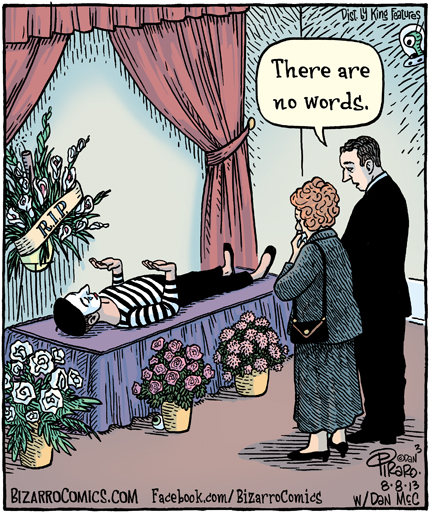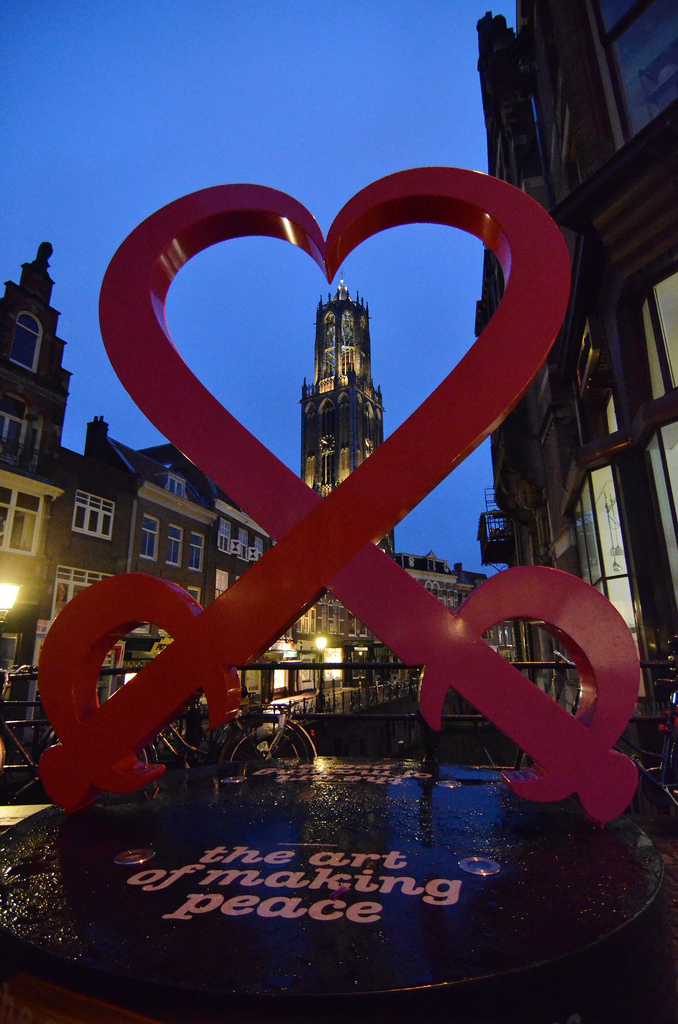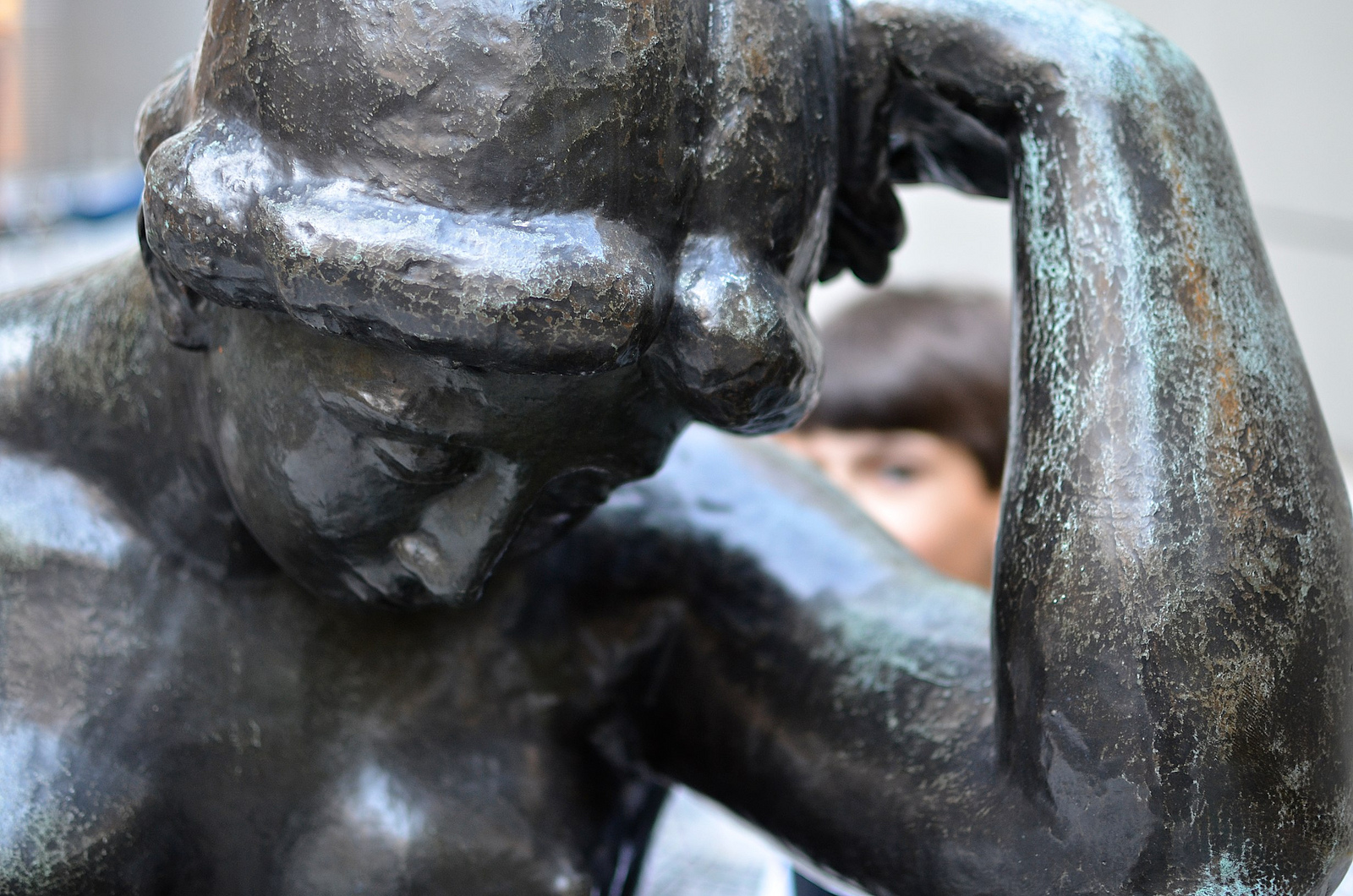UPDATE: The video is now up.
This is the lecture I gave for the 20th Annual Mark Luchinsky Lecture. I will be posting the video, or at least the audio and slides, on our college’s YouTube channel this weekend. In the meantime, here are my scripted remarks, I departed occasionally from them, but the core concepts are here. From the opening remarks:
Tonight we recognize the anniversary of Mark Allan Luchinsky’s passing on January 18, 1995 at the age of twenty (20). The Mark Luchinsky Memorial Series was created in 1996 to remember and honor his character and contributions to life as a son, as an undergraduate and, most importantly, as a young man whose life held much promise.
Mark Luchinsky, a University Scholar majoring in biochemistry, was a member of the Penn State Golden Key Honor Society and the Alpha Epsilon Delta Premedical Honor Society.
Although he was a science student, Mark loved the study of all subjects, including the classics, poetry, history, geography and sports.
Please join me in a moment of silence.
Thank you and good evening. I want to begin by thanking you all for coming, especially my wife Elizabeth, daughter Izzy, and parents Charles and Ann Brady. Tonight will be a bit personal at points and I am grateful for their continued support and presence here tonight.
Tonight is the 20th anniversary of this lecture. It is 20 years since Mark Luchinsky died so suddenly and far too soon. For the past eight years I have read those words of introduction and led us in a moment of silence for Mark. He was a remarkable young man, full of life and a passion for learning, so it has been appropriate that each year we have a different, distinguished Scholar alumnus or alumna share of their expertise. As we approached the 20th anniversary I reflected on the fact that this is a memorial lecture, it was endowed upon his untimely death. His parents, family, and friends came together to provide the funds so that there would be, in perpetuity, this celebration of Mark’s life and remembrance of his character.
A little over two years ago we lost our son, Mack. He was just two weeks shy of his ninth birthday and it was a swift and sudden infection that took him from us in a matter of hours. Over the last 26 months my wife Elizabeth and I, along with our daughter Izzy, have spent a lot of time contemplating our own loss. It is something that we live with daily, moment by moment. In the first week after Mack died I offered this very poor analogy:
Bearing our loss is a bit like being forced to wear a pair of painful, ill-fitting shoes. They hurt like hell and make you limp, wince, and cry, but you can’t take them off. The only way to ease the pain is to start walking, to break them in. Blisters form, calluses, and the limp begins to settle in. After a while, months or years, I don’t know yet, I imagine that you begin to think less and less about what shoes you are wearing and most people won’t notice the limp and the occasional wince.
We continue to put on our shoes every morning (or, in reality, never take them off, even as we sleep and dream) and while I cannot say that I think less about Mack, we continue moving forward. As that great philosopher Dori said, “Just keep swimming.”
Tonight I will share some of what I have learned in our experience and how we “keep swimming.” I hope that it may be helpful. My goal is to open up a conversation so please feel free to use the #Luchinsky and ask any questions you like when I have completed these opening remarks.
How we lament
The sad irony is that I had already had as much preparation for such loss as I suppose one could. For over a decade — the course of my doctoral research, a thesis, a dozen or so articles, and a book — I studied Jewish and Christian responses to tragedy. My entry point to this was the biblical book of Lamentations.
If you will indulge me for a few minutes I would like to tell you a little about that work and my own progression from academic study to personal lament. In the sixth century BCE Jerusalem was the small capital of the rather minor kingdom of Judah. The bully in the neighborhood was Babylon, led by King Nebuchadnezzar. Jerusalem decided to withhold their tribute and a two-year siege ensued. The result was starvation, cannibalism, and ultimately the destructions of the city and the Temple, God’s footstool.
This moment was, in many ways, the most pivotal moment in the history of Judaism. Most of us would probably point to the Holocaust as the single greatest catastrophe in Jewish history, but I would argue that 586 BCE was of far greater impact and import. While we can never diminish the loss of more than 6 million lives, there were Jews around the world whom the Nazis would never reach. Yet when Babylon destroyed Jerusalem, they very nearly wiped out all Judeans/Jews.
More importantly from a theological perspective, the Temple had been destroyed. That was, as I said, “God’s footstool,” this is where and how God communicated with his people. At the very least its destruction was a sign that God had abandoned his people, at the worst it meant that Marduk, the god of Babylon, had beaten the god of Israel.
The Book of Lamentations is a collection of five laments, poems that express the utter devastation and desolation that the people who survived the siege felt. It is powerful, raw, and itself devastating.
Lam 1:7 (NRSV) Jerusalem remembers,
in the days of her affliction and wandering,
all the precious things
that were hers in days of old.
When her people fell into the hand of the foe,
and there was no one to help her,
the foe looked on mocking
over her downfall.
Lam 2:1 (NRSV) How the Lord in his anger
has humiliated daughter Zion!
He has thrown down from heaven to earth
the splendor of Israel;
he has not remembered his footstool
in the day of his anger.
Lam 2:11 (NRSV) My eyes are spent with weeping;
my stomach churns;
my bile is poured out on the ground
because of the destruction of my people,
because infants and babes faint
in the streets of the city.
Lam 2:12 (NRSV) They cry to their mothers,
“Where is bread and wine?”
as they faint like the wounded
in the streets of the city,
as their life is poured out
on their mothers’ bosom.
The poet expresses their astonishment and deep sorrow as they remember their past glory and downfall and more powerfully calls out that “there was no one to help her!” I will not go deeply into the theology here (unless you really want to in the Q&A), but the author is trying to come to terms with how this horrible calamity could possible be allowed by God.
Lam 2:20 (NRSV) Look, O LORD, and consider!
To whom have you done this?
Should women eat their offspring,
the children they have borne?
Should priest and prophet be killed
in the sanctuary of the Lord?
This is what we tend to think of when we consider grief and talk about “survivors.” We think of big things like a child dying, a deranged gunman in a school, the Holocaust, a natural disaster like a tsunami or hurricane, or an accident such as plane falling out of the sky, or car accident. But the reality is that we all experience momentous and catastrophic events all the time. They might seem small on a global scale, but for each individual involved, their entire world is in crisis.
It was my friend and colleague Todd Linafelt, in his book entitled Surviving Lamentations: Catastrophe, Lament, and Protest in the Afterlife of a Biblical Book, who pointed out that to “survive” is from the Old French meaning “to live beyond.”
My concern is that we think of a survivor as one who has lived through something rather than one who lives beyond. Tonight I want to consider how we can continue to live and live fully even after we have had such a crisis.
The first step, I believe, is to recognize that we grieve all sorts of things in our lives. Or rather, we ought to grieve many things in our lives, but we tend to only recognize the loss of a loved one as warranting grief.
What we grieve
For example, many of our students come into Penn State with a very specific life plan in mind, often they are going to be a physician, they have shadowed doctors, interned at clinics, and they know they are going on to med school. Their identity is often wrapped up in that goal. Or perhaps they have been recruited to plan a sport and when you are recruited to play a division 1 sport at a school like Penn State that means you are one of the best in the nation. There are dreams of playing in the NHL or the WNBA. But then in the sophomore year a blown knee brings it all to a halt. While no one would suggest openly that this is as difficult as losing one’s child, for those involved it is and we should recognize it as such.
So this is where we need to begin in our quest for healthy emotional life. It is to recognize that such losses are true losses for those involved.
I completely understood when talking with a student, shortly after Mack died, and she said, “I am sorry to bother you Dean Brady. My changing majors is nothing compared with you and your wife losing your son.” Of course they are different categories of loss, but as I told the student, for her at that point in her life, this was a major loss and change. She had always intended to be a physician and realizing that she just did not have the aptitude necessary in the life sciences was truly heart breaking for her. All her plans and thoughts about her future were no longer applicable.
(In the interest of full disclosure, I should note that I too was originally on that track. It was very difficult for me to come to terms with the fact that my goals for the last 4 years were no longer going to be attained.)
Granger Westberg points out that we have lots of “little griefs” in our every day lives, such as when a friend or a spouse cancels a date or a meal at the last minute, and how we handle these smaller griefs inform how we handle the larger ones as well. “A list of losses would be inexhaustible,” says Granger, “We can lose our health, our eyesight, our hearing. … In some families grief comes with the loss of a pet which has been a part of everything that has gone on in that household for ten years or more. Any of these things, and many more, sets in motion a cycle of grief. Grief is a natural part of human experience.” (Good Grief, p. 16; italics mine)
The key then is how we respond to these normal and natural occurrences in life.
I want you to take the piece of paper and pen that you were given as you walked in and write on one side of it something that you have been grieving over in the last few weeks, months, or years. It may be obvious, your parents might have gotten divorced, your boyfriend cheated on you, what have you. But it may also be something more subtle, perhaps a realization that soon you will have to graduate and leave this sheltered grove of academe. Whatever it is, take a few moments to write that down on that slip and hold on to it.
What choice do we have?
It is understandable that when these sorts of tragedies come upon us we feel helpless and defeated. Perhaps the most devastating aspect, at least in terms of our own recovery, is the sense that there is nothing we can do, we have no options, no choices remaining to us. There is nothing we can do to change the reality that we now live in.
And that is true.
We have to recognize when we are in a situation that we can no longer affect. I cannot tell you how often we still say to one another, “I can’t believe that Mack is gone.” Yet at some point we do have to accept this new reality. That doesn’t mean we like it, but we have to simply acknowledge that things are never going to be the same. Then we can begin to reorient ourselves to our new path that our lives have taken.
There are no words, but we can also remember the fact that Izzy, Mack, and I loved to read comics together. And while some might find it in poor taste I know that Mack would find it high-larious. And that is a choice that I have made. To laugh, even when (especially when) I have no other words.
The significant hurdle here is quite often the deepest wound in our grief. That is to say, we had our plans, our vision of what the future would be and now those plans have been shattered, taken out of our control. The student who was certain they were doing to be a real doctor had visualized their life in the white coat, helping patients, and bringing healing. We hoped that Mack would fulfill his own dreams of being a champion soccer goalkeeper, perhaps one day playing for Penn State and the US National team.
Think too about the portions I read from Lamentations. The author looks back, remembering the glorious past of Jerusalem, but also the children who were lost. Why? Because of their innocence, of course, but because of their future which was no more. Whether it is a choice of career, girlfriend/boyfriend, a loved one, a divorce, or any of a thousand other losses, what we are missing is what we never had, the future.
So we have to be honest with ourselves about our present so that we can begin to consider our future. I have been re-reading Tolkien’s Lord of the Rings and an exchange between Frodo and Gandalf is a nice summation:
“I wish it need not have happened in my time,” said Frodo.
“So do I,” said Gandalf, “and so do all who live to see such times. But that is not for them to decide. All we have to decide is what to do with the time that is given us.”
Once we realize which choices we no longer have, then we can realize what choices we do have.
One important choice we can make is to reorient ourselves in light of this new reality, find a new perspective, a new way to look at our loss, our personal catastrophe. For example, there is a common phrase used in helping those who have been sexually assaulted that captures this concept. It is [pullquote]“helping the victim become a survivor.”[/pullquote] “helping the victim become a survivor.” Now I had not heard of this phrase when I first began thinking, all those years ago, about what it means to survive, but it encapsulates quite well the change in perspective that is healthy and quite frankly necessary for us to move beyond whatever adversity it is that we face.
We are survivors because there has been this unalterable moment in our lives, we continue to live beyond it, but we have to begin looking at it in a new way, gaining a new perspective on this unchanging fact. How we look at something does, in a very real sense, change our lives.
We cannot change the fact that Mack is gone, but we have chosen to remember him as he was: fun and funny (loving comics and general silliness), mad about soccer and a determined and dedicated goalkeeper. Through the Mack Brady Goalkeepers Fund at Penn State, we chose to create something that honors him and keeps his memory alive in a positive and affirming way. And this year we have our first Mack Brady goalkeeper go pro! The 2014 MLS Champions LA Galaxy drafted Penn State keeper Andrew Wolverton!
In the same way, the Luchinskys chose to remember their son through this lecture series and so we gather to remember Mark Luchinsky and his love for learning, his strong moral character, and his joy of being a student.
Finding a new perspective – Writing our own narrative
Now I would like you to turn over that piece of paper and write down how you might look differently at that moment written on the other side. How will you reconsider the breakup of with your boyfriend or your parent’s divorce so that you can move forward in a positive way, acknowledging what has happened, but choosing its importance in your life?
For the Luchinskys and the Bradys, we will always be defined in a significant way by the fact that our sons died. But we can choose what that mark is on our lives. If we don’t make the choice for ourselves, seeing these elements and events of our lives making up the whole story, then we end up moving through life like a steel ball in a pinball machine. [pullquote]We will always be defined by the fact that our sons died.[/pullquote]We are launched into the world and then ricochet about, from one event to another. Forces push is towards this career or that city; chance brings us together with this man or that woman. And it is easy to see our lives this way, as a series of discreet events, one after another with little relation to what comes before our after.
Historians, for which I am sometimes mistaken, have the job of piecing together such seeming disparate events and making sense out of them. Showing how it is, for example, that a deeply regrettable killing in Ferguson Missouri can lead to a national discourse on economic disparity, police treatment, and the very meaning of the term “justice.” How we put those events together and how we interpret them is vital to our understanding and consequently to the decisions we each choose to make based upon that understanding.
After the Temple in Jerusalem was destroyed it could have been the end of Judaism. Instead, leaders, prophets, and priests, considered again the traditions they had received and interpreted what happened to them not as God abandoning them, but as God punishing them as a father does a child he loves. The destruction of the Temple was understood not to mean that God had been defeated, but that now the Lord could be worshipped anywhere, even in exile in Babylon. This commentary and interpretation of history and scripture not only allowed the Jews to survived nearly a century in exile, but provided the foundation that would enable them and their faith to endure millennia of suffering and hardship, including the Holocaust. Without the refining fires of the Babylonian siege we would not have Judaism today or, as a simple matter of fact, Christianity and Islam.
We need to do the same examination and interpretation of our own personal history and write our own narrative. We need to take these facts of our lives, as uncomfortable and painful as they may be, we must be honest and upfront about them, and place them within a narrative framework that brings meaning, if not redemption, to our suffering.
The 20th century theologian Emil Brunner begins his work Eternal Hope, dedicated to his two sons who died in their youth, he states,
What oxygen is for the lungs, such is hope for the meaning of human life. Take oxygen away and death occurs through suffocation, take hope away and humanity is constricted through lack of breath; despair supervenes, spelling the paralysis of intellectual and spiritual powers by a feeling of the senselessness and purposelessness of existence. As the fate of the human organism is dependent on the supply of oxygen, so the fate of humanity is dependent on its supply of hope.
Hope is the promise of our future and that is what it means to be a survivor. It is not simply continuing to exist after the waves have crashed over us, but to dream, to make new plans, find new and different meaning, to live.










2 thoughts on “Survive – Living Beyond Adversity”